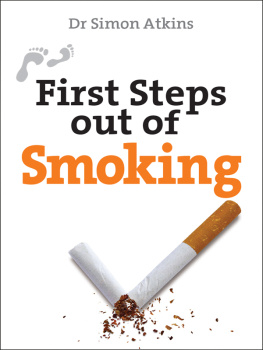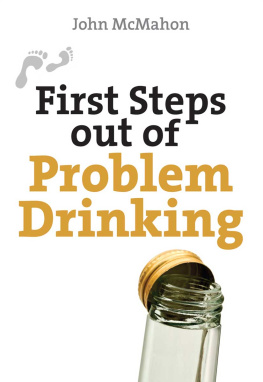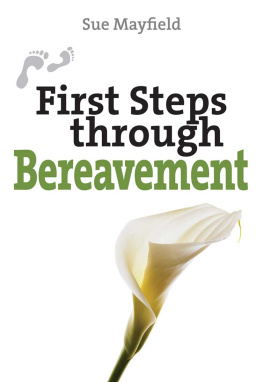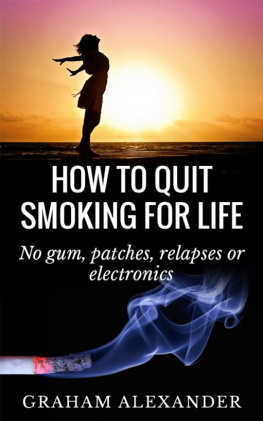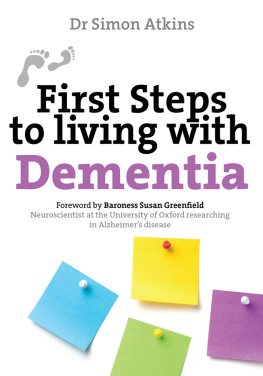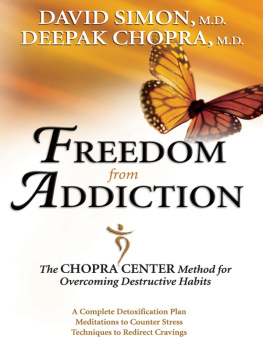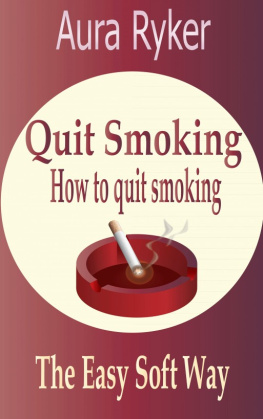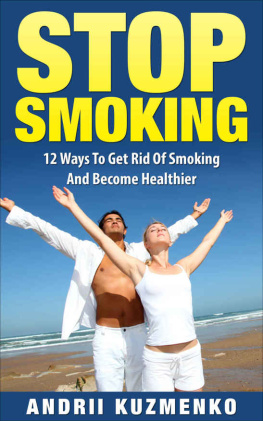All advice given is for information only and should not be treated as a substitute for personal medical advice.
The right of Simon Atkins to be identified as the author of this work has been asserted by him in accordance with the Copyright, Designs and Patents Act 1988.
All rights reserved. No part of this publication may be reproduced or transmitted in any form or by any means, electronic or mechanical, including photocopy, recording, or any information storage and retrieval system, without permission in writing from the publisher.
Introduction
If theres one thing you cant accuse smoking of and, believe me, I will spend the next ninety or so pages mentioning a multitude of things that you can accuse it of its of being un-cool.
Whether its Rolling Stone Ronnie Wood prowling around a concert stage strumming Brown Sugar with one hand while holding a cigarette in the other, Ernest Hemingway tapping a masterpiece into his typewriter with a half-smoked, glowing stub in the corner of his mouth, or Bette Davis smouldering in a black-and-white movie, still with a wisp of smoke curling in front of her legendary eyes, their filter-tipped accessories unquestionably add a touch of glamour and street cred. Smoking, like the Stones themselves, is rock and roll.
And tobacco advertising often used to focus on this cool image, most notably with the Marlboro Man, the rugged cowboy pictured drawing on a cigarette as he worked his horses in the great outdoors. It was an image that helped turn Marlboro into the worlds leading brand.
In my line of work as a doctor, however, the images I see of smokers are far from cool. I regularly see people whose years of inhaling have helped fur up their arteries, leading to paralysing strokes or crushing heart attacks. These once-fit individuals now need someone else to feed them and wipe their backsides. There are those whose smoke-ravaged lungs no longer take in enough air with each breath, who puff and pant with the smallest exertion, and need an oxygen cylinder close by just to climb the stairs. Riding a horse in the great outdoors would kill them.
Then there are the countless people whose love of cigarettes has led to mutations in the cells of any number of parts of their body, turning them cancerous. Be it cancer of the mouth, throat, lungs, bladder, or guts, the effect is the same: a long, slow death as the relentlessly dividing cancer cells steal the energy from their bodies and strip flesh from their bones.
This was what eventually happened to the actor who played the famous Marlboro Man: he died of lung cancer in 1992. And it happens to millions of others around the world every year. Peoples lives cut short simply because of a habit they couldnt or wouldnt quit.
Smoking may look cool in the movies, but when you end your days breathing through a hole in your throat because a surgeon has had to cut out your cancerous larynx, that coolness has long gone.
Of course, if you are a smoker, you will know all of this already. In fact, unless youve just teleported in from Mars in a UFO on a mission to observe our strange little species, you will have been repeatedly made aware by doctors, nurses, the government, and the media about how bad your habit is for you. But, for some reason, this may not be enough to make you want to kick the habit.
Perhaps you are young, you keep fit, eat your greens, and go to bed early with a cup of hot cocoa every night, and believe that all these healthy pursuits will militate against your one, tiny unhealthy activity. We all feel invincible when we are young. There will be plenty of time in the future to pack it in, so why worry now?
You might believe your stressful lifestyle means that you couldnt cope without your trusty cigarettes to help you wind down at the end of the day or relax in a crisis. At least they keep you going and you havent had to hit the bottle!
Or it may be that you just enjoy smoking too much. You have friends who smoke and theres nothing nicer than kicking back with your mates over a glass of wine or a freshly brewed coffee and savouring a cigarette while you do so.
You may have other reasons, unique to you, for carrying on. Until those reasons seem less important than your health and your lifespan, then you wont consider quitting. And that is your choice. No matter how much browbeating you get from others, you wont want or be able to stop. So, if thats you, maybe see what else I have to say on the subject in the other chapters for now and then tuck this book away on your shelves until you feel the time is right and it might come in handy.
If, however, you are ready to quit and your reasons for smoking are finally outweighed by those against , then this is the book for you. Right now!
Some of you may not want any help at all. Youve made your mind up and youre just going to stop go cold turkey as its called and thats all there is to it. Many people find that works for them. My dad, for example, decided to stop smoking when I was born and didnt ever light up another cigarette from that day on, despite a previous forty-per-day habit and the lack of nicotine replacement therapies to help beat cravings in 1967. For others, though, willpower alone is only part of the process and some sort of medical help to counteract the withdrawal symptoms will be vital.
In the following chapters we will look at the different types of help that are available, including nicotine replacement therapies (NRT), pills, e-cigarettes, and smartphone apps. Well also look at the psychological support thats available and cover alternative remedies and whether they have anything genuine to offer when it comes to quitting cigarettes. What really works and what doesnt? There is no point you wasting your time, trying a treatment that is doomed to fail.
But, first, lets consider some hard facts about the full extent of the danger that cigarettes pose to health, followed by a look at why smoking is such a hard habit to break.

